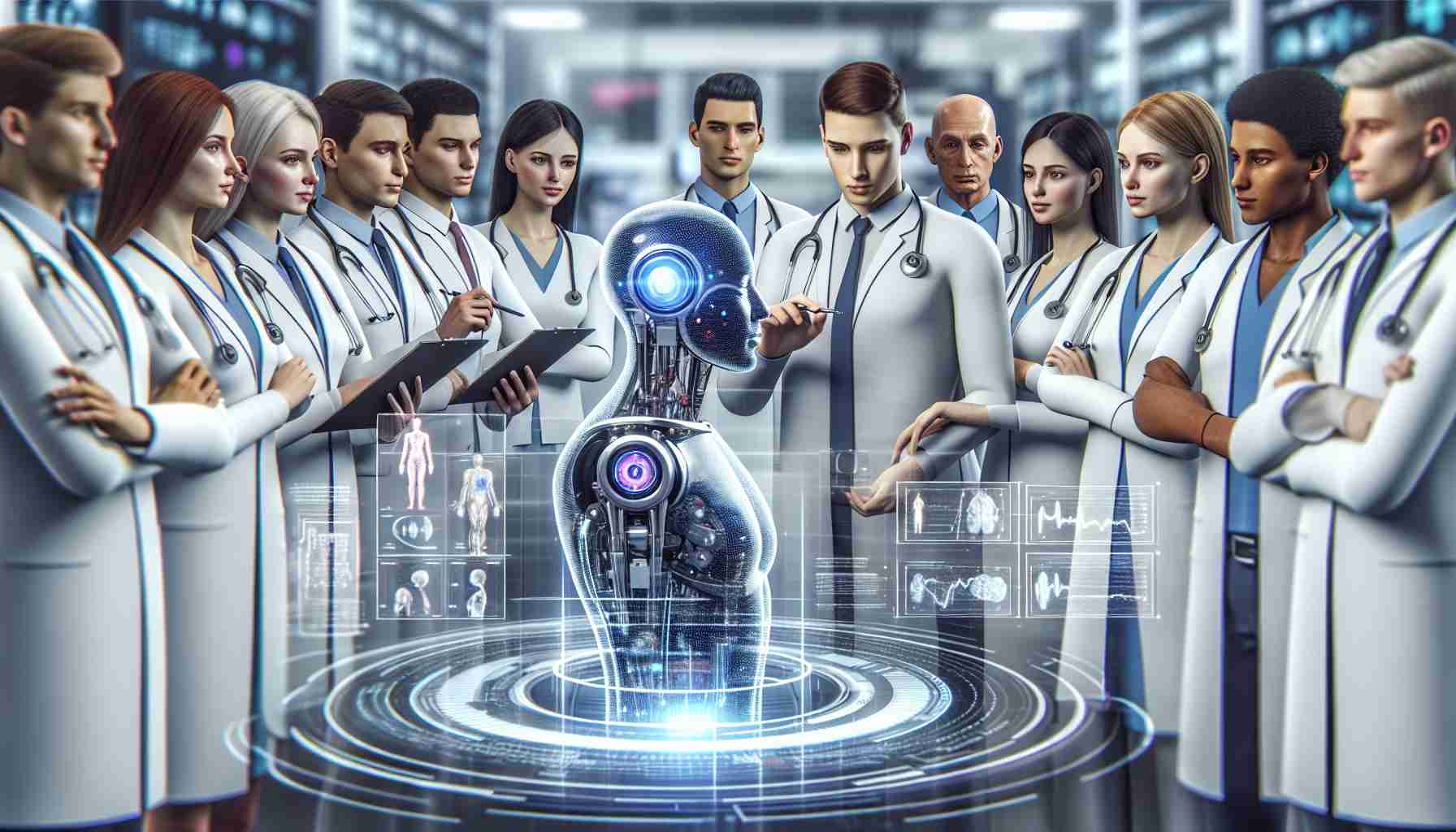Early Detection Saves Lives: A Powerful Collaboration
In a bold move to address the pressing healthcare challenges in India, Google Health and Apollo Radiology International have come together to bring cutting-edge AI technology to the forefront of disease detection. By combining their expertise, they aim to revolutionize the process of early diagnosis, potentially saving countless lives.
Empowering Apollo Radiology with AI Powerhouse
This collaboration is not just about technology; it is about empowering medical professionals. Apollo Radiology, a leader in diagnostic imaging, will now have access to Google’s advanced AI-powered screening systems. These intelligent tools will aid radiologists in analyzing medical scans, particularly chest X-rays, for prevalent diseases such as tuberculosis (TB), lung cancer, and breast cancer. By automating the initial screening process, these tools streamline workflow and allow radiologists to focus on more complex cases, ultimately enhancing efficiency and accuracy.
A Glimpse into the Future: 3 Million Free Screenings
The impact of this collaboration stretches beyond technological advancements. Apollo Radiology has committed to providing an astonishing 3 million free AI-powered screenings for TB, lung cancer, and breast cancer over the next decade. This initiative is geared towards reaching a large population in India, especially those in underserved communities who often lack easy access to quality healthcare facilities.
Why Focus on These Specific Diseases?
The choice to prioritize TB, lung cancer, and breast cancer for the AI-powered screening program is a strategic one. Let’s explore the rationale behind each:
Tuberculosis: In India, tuberculosis remains a serious public health concern. Early detection is crucial for effective treatment and preventing the spread of this highly contagious bacterial infection.
Lung Cancer: With a high mortality rate, lung cancer poses a significant challenge in India. Identifying early signs in chest X-rays can greatly impact patient outcomes and increase chances of survival.
Breast Cancer: Mortality rates for breast cancer in India surpass those in the US. Early detection through mammograms is essential, and AI has the potential to identify subtle abnormalities that may go unnoticed by the human eye.
Beyond Early Detection: The Ripple Effect of AI
This collaboration sets the stage for the transformative role of AI in healthcare. Here are some potential benefits that lie ahead:
Improved Accessibility: AI-powered screening tools can reach remote areas with limited access to radiologists, ensuring timely diagnosis for a wider population.
Reduced Costs: Early detection through AI can lead to lower healthcare costs associated with advanced stages of diseases.
Enhanced Accuracy: AI algorithms continuously learn and improve, increasing their ability to detect abnormalities and potentially leading to more accurate diagnoses.
Faster Treatment Initiation: By identifying potential concerns earlier, healthcare professionals can start treatment promptly, improving patient outcomes and prognosis.
Looking Ahead: A Brighter Future for Healthcare
The collaboration between Google Health and Apollo Radiology International offers hope for a brighter healthcare landscape in India. By harnessing the power of AI, this initiative has the potential to transform early disease detection, saving innumerable lives and paving the way for a healthier future for millions.
FAQ
1. What is AI-powered disease detection?
AI-powered disease detection refers to the use of artificial intelligence technology to analyze medical scans, such as X-rays, and identify potential abnormalities or signs of specific diseases. By leveraging advanced algorithms, AI can assist healthcare professionals in early diagnosis, leading to improved treatment outcomes.
2. How can AI benefit healthcare?
AI has the potential to revolutionize healthcare in several ways. It can improve accessibility to medical services, reduce costs by detecting diseases at an early stage, enhance diagnostic accuracy, and expedite treatment initiation. By augmenting the capabilities of healthcare professionals, AI technology has the power to transform the healthcare industry for the better.
3. Will AI replace radiologists?
AI is designed to assist and enhance the work of radiologists, rather than replace them. While AI-powered screening tools can automate certain aspects of the diagnosis process, radiologists play a crucial role in interpreting and making informed decisions based on the scan results. The collaboration between AI and radiologists aims to improve efficiency and accuracy in healthcare, ultimately benefiting patients.
(Sources: https://www.google.com/health/, https://www.apolloradiologyintl.com/)
The collaboration between Google Health and Apollo Radiology International is set to make a significant impact on the healthcare industry in India. By bringing together advanced AI technology and the expertise of medical professionals, this partnership aims to revolutionize the process of early disease detection.
Apollo Radiology, a leader in diagnostic imaging, will now have access to Google’s AI-powered screening systems. These intelligent tools will aid radiologists in analyzing medical scans, particularly chest X-rays, for diseases such as tuberculosis (TB), lung cancer, and breast cancer. By automating the initial screening process, these tools enhance efficiency and accuracy, allowing radiologists to focus on more complex cases.
Additionally, Apollo Radiology has committed to providing 3 million free AI-powered screenings for TB, lung cancer, and breast cancer over the next decade. This initiative aims to reach underserved communities in India that often lack easy access to quality healthcare facilities.
The choice to prioritize TB, lung cancer, and breast cancer for the AI-powered screening program is strategic. In India, tuberculosis remains a serious public health concern, and early detection is crucial for effective treatment and prevention. Lung cancer has a high mortality rate in the country, and identifying early signs in chest X-rays can greatly impact patient outcomes. Breast cancer mortality rates in India surpass those in the US, highlighting the importance of early detection through mammograms.
The collaboration between Google Health and Apollo Radiology International sets the stage for AI’s transformative role in healthcare. With improved accessibility, reduced costs, enhanced accuracy, and faster treatment initiation, AI has the potential to revolutionize the healthcare industry in India.
For more information, you can visit Google Health’s website at google.com/health and Apollo Radiology International’s website at apolloradiologyintl.com.

